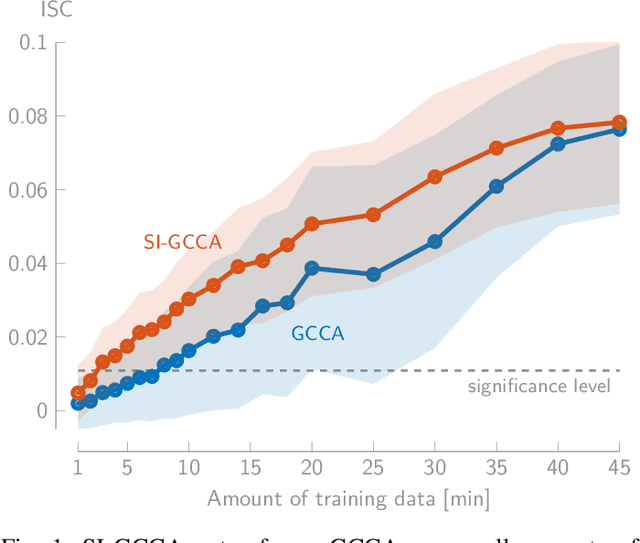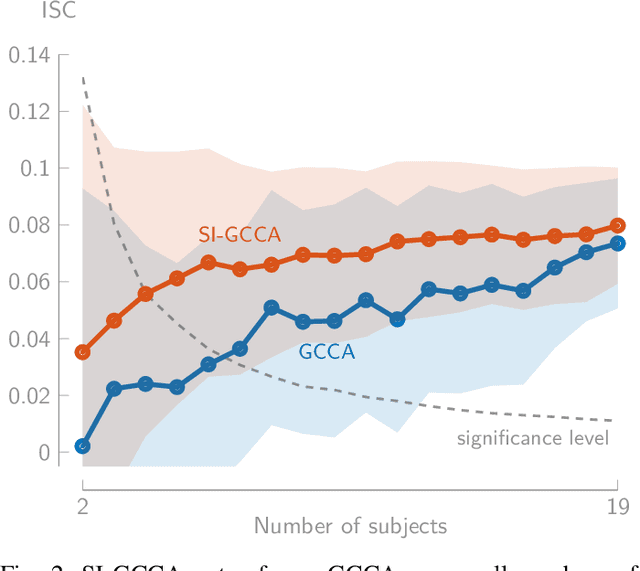Stimulus-Informed Generalized Canonical Correlation Analysis of Stimulus-Following Brain Responses
Paper and Code
Oct 24, 2022

In brain-computer interface or neuroscience applications, generalized canonical correlation analysis (GCCA) is often used to extract correlated signal components in the neural activity of different subjects attending to the same stimulus. This allows quantifying the so-called inter-subject correlation or boosting the signal-to-noise ratio of the stimulus-following brain responses with respect to other (non-)neural activity. GCCA is, however, stimulus-unaware: it does not take the stimulus information into account and does therefore not cope well with lower amounts of data or smaller groups of subjects. We propose a novel stimulus-informed GCCA algorithm based on the MAXVAR-GCCA framework. We show the superiority of the proposed stimulus-informed GCCA method based on the inter-subject correlation between electroencephalography responses of a group of subjects listening to the same speech stimulus, especially for lower amounts of data or smaller groups of subjects.
 Add to Chrome
Add to Chrome Add to Firefox
Add to Firefox Add to Edge
Add to Edge